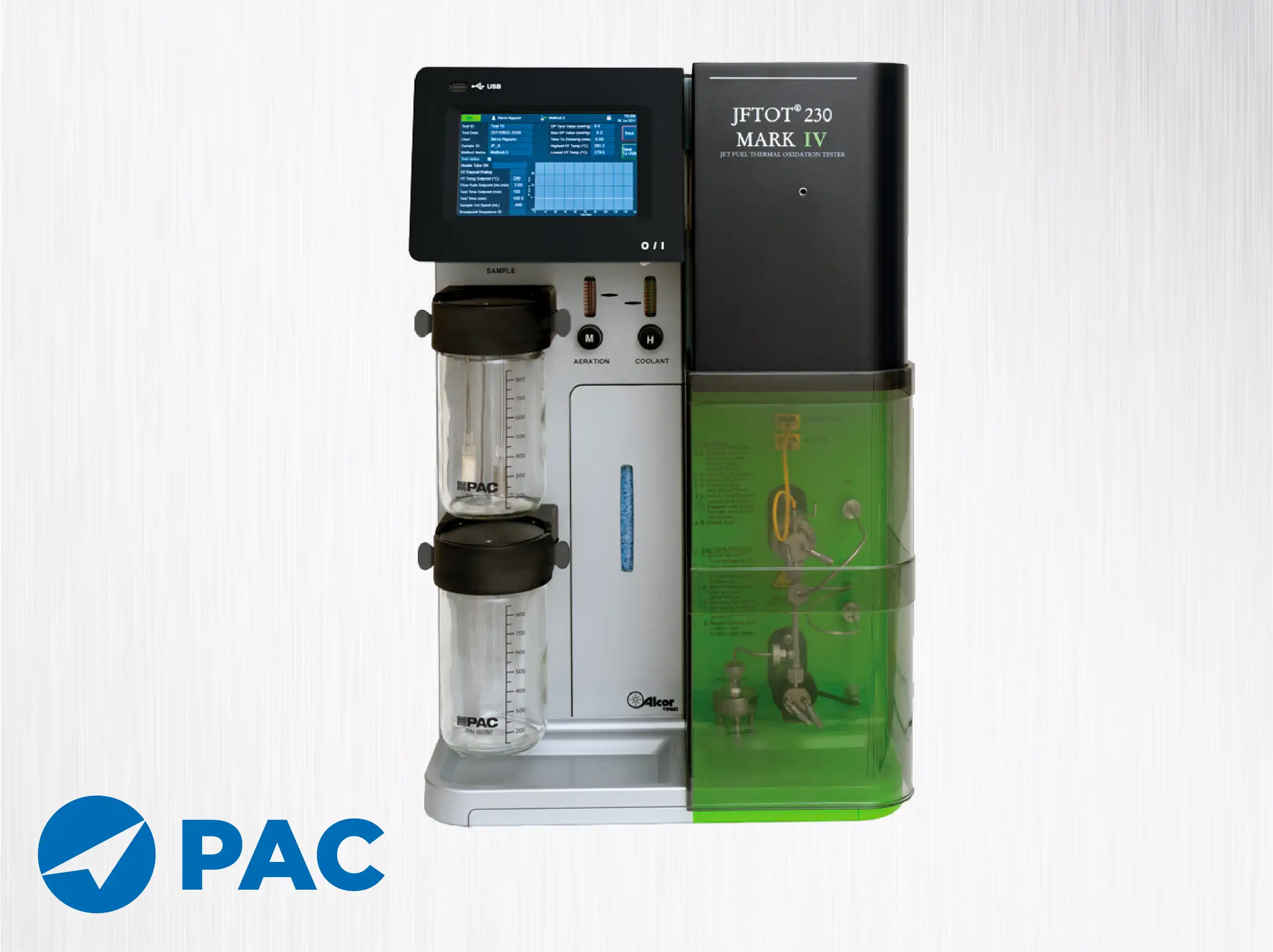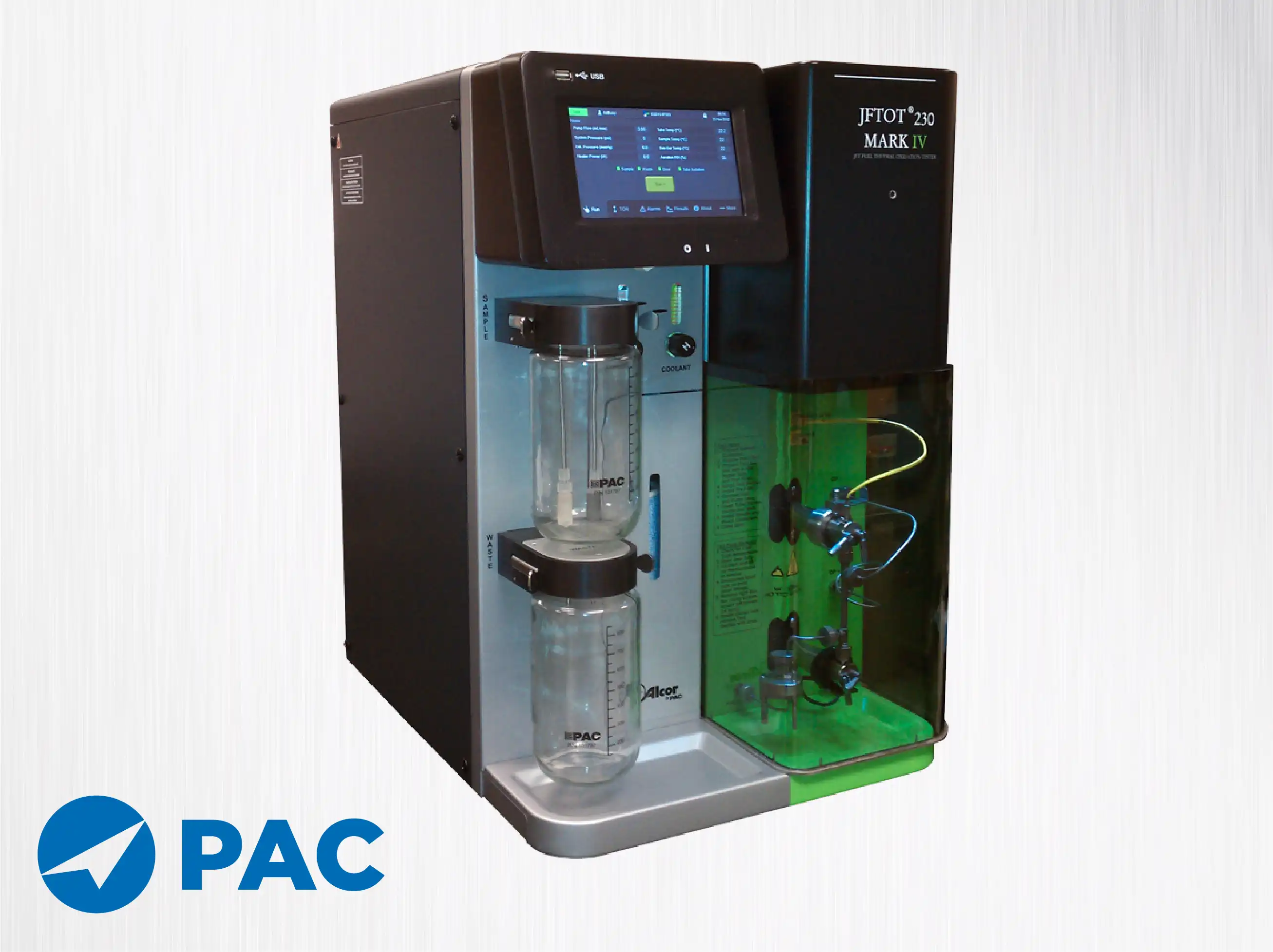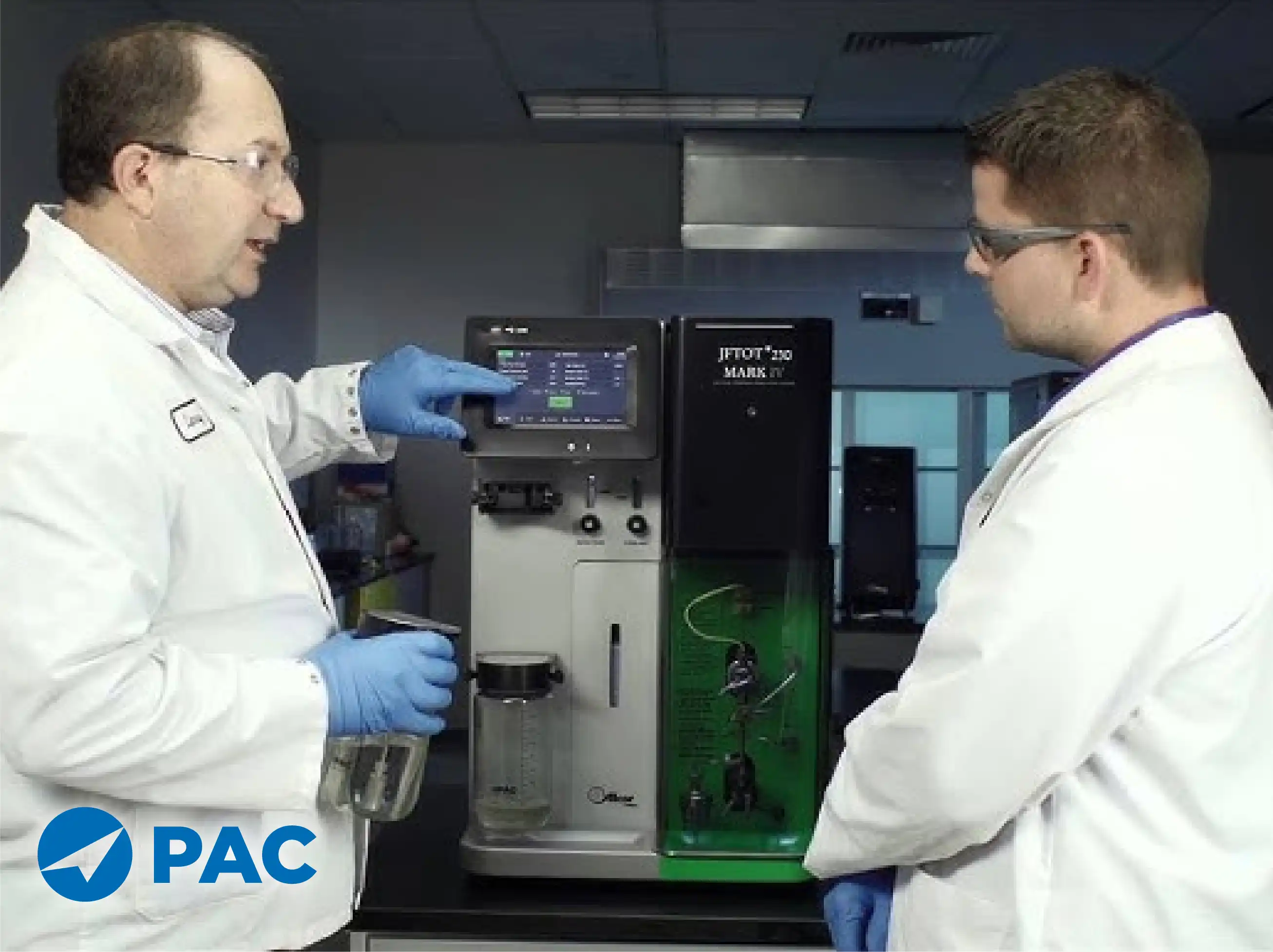
Jet Fuel Thermal Oxidation Testing
Precise, High-Temperature Fuel Stability Analysis
Jet Fuel Thermal Oxidation Testing
Jet Fuel Thermal Oxidation Testing evaluates the thermal stability of aviation fuels under high-temperature conditions that replicate real operational environments. The test simulates fuel flow through heated tubes, assessing the fuel’s tendency to form deposits, color changes, and other chemical degradation. Accurate evaluation of these parameters is critical for ensuring engine reliability, safety, and long-term fuel performance.
The system employs precision-controlled heater tubes with accurate temperature management and uniform flow distribution. Sensors continuously monitor the temperature and pressure within the tubes, ensuring reproducible and standardized testing conditions. This allows for detailed assessment of fuel stability characteristics under realistic thermal stress conditions, essential for aviation safety and regulatory compliance.
High-resolution monitoring detects deposit formation on tube walls, including coking and fouling, which can adversely affect heat transfer and fuel system performance. The test identifies initial deposit formation, providing early insight into potential operational issues. These measurements are critical for formulating additives, evaluating fuel batches, and optimizing jet fuel handling procedures.
Automated operation ensures consistent flow rates, temperature ramps, and hold times, providing repeatable and accurate results. The system is designed to accommodate a wide range of aviation fuel types, including conventional jet fuels and biojet blends. This enables comprehensive testing of fuel properties to support performance evaluation, additive efficiency, and fuel certification.
Real-time data acquisition captures temperature, flow, and deposit accumulation information throughout the test. The integration of software tools allows visualization of deposit thickness, temperature profiles, and fuel degradation trends, facilitating data-driven decision-making for fuel selection and refinery operations.
The testing methodology is non-destructive and preserves fuel integrity, allowing repeated measurements for long-term studies or comparative analysis. This ensures reliable characterization of thermal stability and supports predictive maintenance strategies to minimize operational risk in aviation fuel systems.
Robust construction and high-temperature resistant materials allow the system to safely operate under rigorous thermal conditions while maintaining measurement accuracy. Minimal sample preparation and automated workflows improve laboratory efficiency, enabling routine quality control and research applications without impacting throughput.
By combining precise temperature control, automated testing, and high-resolution data analysis, Jet Fuel Thermal Oxidation Testing provides actionable insights into fuel stability, deposit formation, and oxidation behavior. It ensures compliance with international standards, improves engine reliability, and supports safe, efficient, and optimized fuel operations in the aviation industry.








